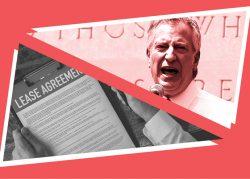A group that fights big-state policies is restarting its case against New Jersey Gov. Phil Murphy on landlords’ behalf.
The New Civil Liberties Alliance argues that Murphy overstepped his authority with an executive order last spring allowing security deposits to be used towards rent. The case was moved to the New Jersey Appellate Court in December to save time.
This week the nonprofit group filed an opening brief arguing that Murphy’s Executive Order No. 128 violated the separation of powers and deprived property owners of due process.
The order, signed a year ago this month, aimed to help renters who lost income during the pandemic. It gives tenants the option to instruct landlords to use security deposits to offset rent without needing to replenish their security deposit until 60 days after the pandemic — which hasn’t ended.
The order maintains tenants’ responsibility to pay for property damage and anything else that the security deposit would cover. But, with the order and an eviction moratorium still in place, NCLA says tenants are taking advantage and leaving landlords to pay out of pocket.
“The landlords and tenants negotiate these contracts upfront to set the incentives … [The order] shifts the incentives and the behaviors of the parties,” said Jared McClain, who represents NCLA in the suit.
Read more


After the executive order was issued, a tenant wrote to one of McClain’s landlord clients and asked to use the $2,000 security deposit for rent, McClain said.
The tenant skipped out on last month’s rent, left the apartment with $1,800 worth of damage and disappeared.
“They entered this lease, they agreed to what the rent was going to be, they agreed for a security deposit,” McClain said. “Those were the parameters of the contractual relationship … and the governor unilaterally changed that retroactively.”
Several dozen landlords have reached out to the NCLA with similar stories, saying the order left them struggling to make ends meet or forced them to put rental units up for sale, according to the organization.
Murphy’s office and the New Jersey Tenants Organization did not respond to requests for comment.
